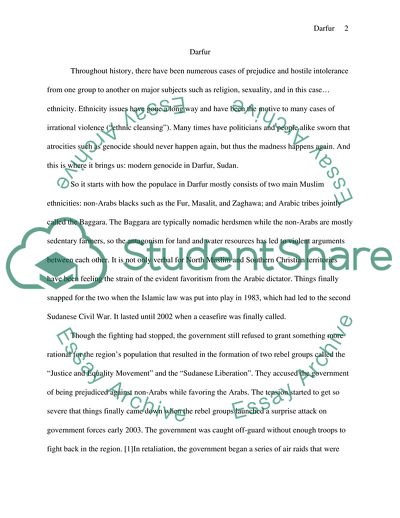Cite this document
(Modern Genocide in Darfur, Sudan Article Example | Topics and Well Written Essays - 2500 words - 1, n.d.)
Modern Genocide in Darfur, Sudan Article Example | Topics and Well Written Essays - 2500 words - 1. https://studentshare.org/history/1717082-darfur
Modern Genocide in Darfur, Sudan Article Example | Topics and Well Written Essays - 2500 words - 1. https://studentshare.org/history/1717082-darfur
(Modern Genocide in Darfur, Sudan Article Example | Topics and Well Written Essays - 2500 Words - 1)
Modern Genocide in Darfur, Sudan Article Example | Topics and Well Written Essays - 2500 Words - 1. https://studentshare.org/history/1717082-darfur.
Modern Genocide in Darfur, Sudan Article Example | Topics and Well Written Essays - 2500 Words - 1. https://studentshare.org/history/1717082-darfur.
“Modern Genocide in Darfur, Sudan Article Example | Topics and Well Written Essays - 2500 Words - 1”. https://studentshare.org/history/1717082-darfur.


